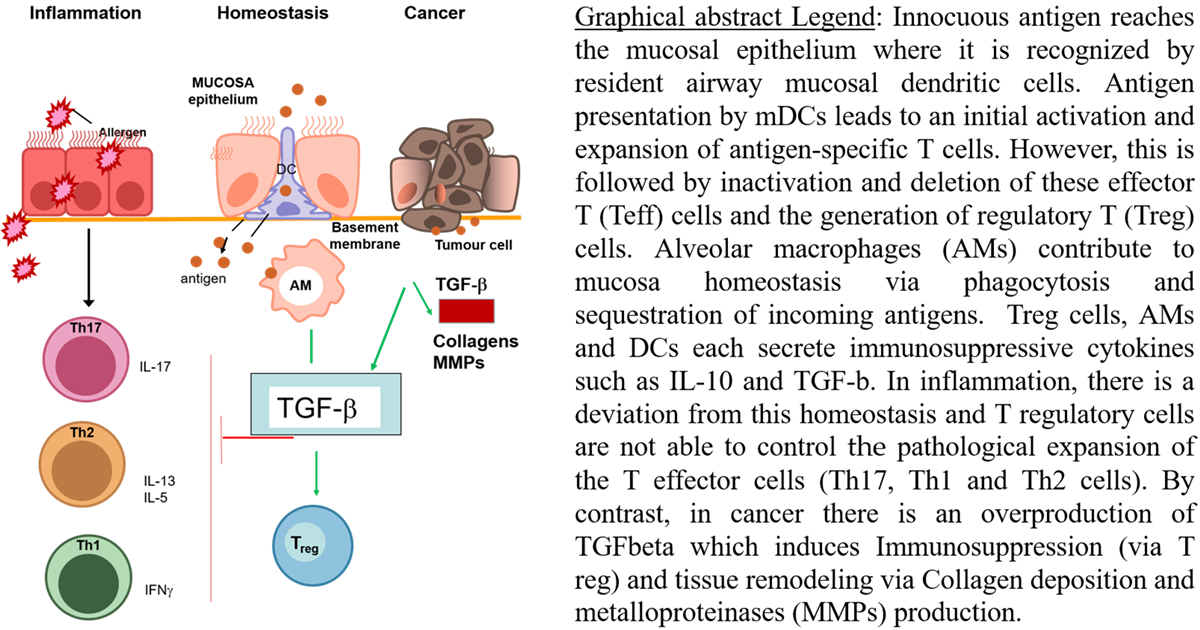TGF-Beta Signaling in Chronic Inflammation and Cancer: From Immunosuppression to Tissue Remodeling
A special issue of Cells (ISSN 2073-4409). This special issue belongs to the section "Cell Signaling".
Deadline for manuscript submissions: closed (28 February 2023) | Viewed by 7215

Special Issue Editor
Interests: allergic asthma; immunoregulation; anti-viral immune responses; anti-tumor immune responses
Special Issues, Collections and Topics in MDPI journals
Special Issue Information
Dear Colleagues,
Transforming growth factor-β (TGF-β) is a pleiotropic cytokine with key regulatory roles in tissue homeostasis, inflammation and cancer. TGF-β signaling has cytostatic and apoptotic functions that help mammalian tissues to maintain homeostasis by restraining immune cell activation seen in autoimmunity and allergies. In these globally increasing conditions, the immune system damages its own tissues via specific molecular signaling events. These diseases are treated with immunosuppressive medications like corticosteroids or biological agents such as anti-cytokine antibodies. In allergic diseases, a hypersensitivity of the immune system to normally harmless substances in the environment causes the body to react to any contact with that substance. Thereby, TGF-β can induce tissue fibrosis and marked damage via tissue remodeling. In contrast to inflammatory disorders in which TGF-β may suppress inflammation, this cytokine may dampen anti-tumor immune responses in cancer. In fact, tumor cells can overproduce TGF-beta to create a local immunosuppressive environment that promotes tumor growth and metastasis.
For these reasons, there is a growing interest in understanding and therapeutically targeting TGF-β-mediated processes in cancer progression, and by contrast the need to understand the possible therapeutic role of TGF-beta in autoimmune and allergic disorders.
In this Special Issue, we wish to analyze the effect of TGF-beta-producing cells in health and disease. This Issue will help to find new avenues to improve current therapies for autoimmunity, allergies and cancer.
Prof. Dr. Susetta Finotto
Guest Editor
Manuscript Submission Information
Manuscripts should be submitted online at www.mdpi.com by registering and logging in to this website. Once you are registered, click here to go to the submission form. Manuscripts can be submitted until the deadline. All submissions that pass pre-check are peer-reviewed. Accepted papers will be published continuously in the journal (as soon as accepted) and will be listed together on the special issue website. Research articles, review articles as well as short communications are invited. For planned papers, a title and short abstract (about 100 words) can be sent to the Editorial Office for announcement on this website.
Submitted manuscripts should not have been published previously, nor be under consideration for publication elsewhere (except conference proceedings papers). All manuscripts are thoroughly refereed through a single-blind peer-review process. A guide for authors and other relevant information for submission of manuscripts is available on the Instructions for Authors page. Cells is an international peer-reviewed open access semimonthly journal published by MDPI.
Please visit the Instructions for Authors page before submitting a manuscript. The Article Processing Charge (APC) for publication in this open access journal is 2700 CHF (Swiss Francs). Submitted papers should be well formatted and use good English. Authors may use MDPI's English editing service prior to publication or during author revisions.
Keywords
- TGF-beta
- inflammation
- cancer
Benefits of Publishing in a Special Issue
- Ease of navigation: Grouping papers by topic helps scholars navigate broad scope journals more efficiently.
- Greater discoverability: Special Issues support the reach and impact of scientific research. Articles in Special Issues are more discoverable and cited more frequently.
- Expansion of research network: Special Issues facilitate connections among authors, fostering scientific collaborations.
- External promotion: Articles in Special Issues are often promoted through the journal's social media, increasing their visibility.
- e-Book format: Special Issues with more than 10 articles can be published as dedicated e-books, ensuring wide and rapid dissemination.
Further information on MDPI's Special Issue polices can be found here.






